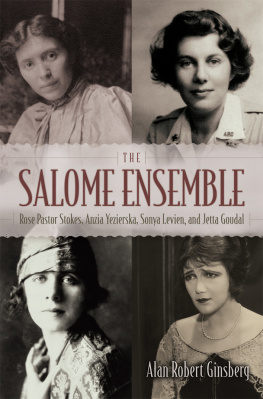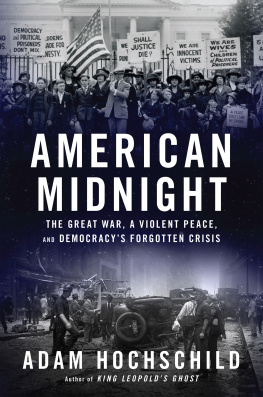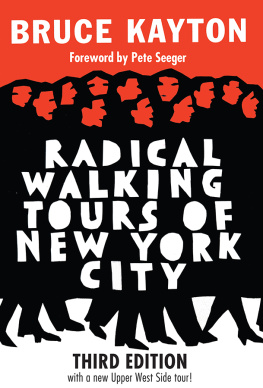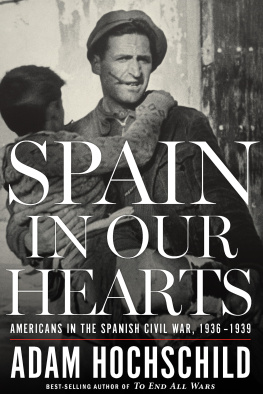Copyright 2020 by Adam Hochschild
All rights reserved
For information about permission to reproduce selections from this book, write to or to Permissions, Houghton Mifflin Harcourt Publishing Company, 3 Park Avenue, 19th Floor, New York, New York 10016.
hmhbooks.com
Library of Congress Cataloging-in-Publication Data
Names: Hochschild, Adam, author.
Title: Rebel Cinderella : from rags to riches to radical, the epic journey of Rose Pastor Stokes / Adam Hochschild. Description: Boston : Houghton Mifflin Harcourt, 2020. | Includes bibliographical references and index. Identifiers: LCCN 2019027932 (print) | LCCN 2019027933 (ebook) | ISBN 9781328866745 (hardcover) | ISBN 9781328866769 (ebook) | ISBN 9780358313168 | ISBN 9780358309536 Subjects: LCSH: Stokes, Rose Pastor, 18791933. | FeministsUnited StatesBiography. | Women socialistsUnited StatesBiography. | Women political activistsUnited StatesBiography. | Jewish refugeesUnited StatesBiography. | Women immigrantsUnited StatesBiography.
Classification: LCC HQ 1413. S 69 A 3 2020 (print) | LCC HQ 1413. S 69 (ebook) | DDC 305.42092 [B]dc23
LC record available at https://lccn.loc.gov/2019027932
LC ebook record available at https://lccn.loc.gov/2019027933
Cover design by Christopher Moisan
Cover illustration Andrew Davidson
Author photograph Barbi Reed
v1.0120
For Georges and Anne Borchardt
Prologue:
Tumult at Carnegie Hall
May 5, 1916 . Some three thousand people are packed into seats on both the sloping main floor and the four tiers of boxes and balconies sweeping in graceful arcs around the side and back walls. Men and women from an overflow crowd are standing at the rear of the hall. Another thousand people have been turned away at the door. But this is no ordinary evening in New York Citys venerable temple of the arts. Policemen, uniformed and plainclothes, are stationed in Carnegie Halls aisles, in the corridors, and on the pavement outside. They are here because they have anticipated just what is now happening: a young woman is publicly violating the law.
The crowd tonight has gathered to denounce the notorious Comstock Act, which makes it a crime to distribute material of an immoral nature, including information about birth control. Onstage is Rose Pastor Stokes, a slender woman of 36, her reddish-brown hair pulled back in a chignon. Her voice carries a warmth and passion that has given her a rare ability to inspire almost any audience.
We have met here, she says, in protest against the law which operates to keep the knowledge of contraception from the mothers of the poor and blinks at the fact that the comfortable classes obtain that knowledge from their highly-paid physicians and from one another. We demand that the law which is a dead letter for the rich also become a dead letter for the poor. She mocks those who claim that birth control is not only against the law of man but of the Almighty. Such junior partners of the Lord seem to know it is Gods will that children should come indiscriminately into the world; and that a large percentage of them should also be forced out of the world by humanly preventable conditions.
An immigrant, socialist, and union organizer, Rose Pastor Stokes spent 12 long years of her childhood and youth in sweatshops manufacturing cigars. Despite having less than two years of formal schooling, she has become one of the most renowned radical orators of her time. She has the crowds rapt attention as she describes how she has received letters from young mothers with two or three or four children who... desire to wait for a time when they can decently and safely take care of more children before bringing them into the world. Letters from mothers who have been warned by their physicians that another childbirth would mean the mothers death, but to whom those same doctors denied contraceptive information.... Such and many more have come to me day after day and are still coming. Some of them too tragic and too terrible to quote. She reminds the packed audience that she speaks with the authority of her own childhood, when she had frequently the hard floor for a bed, and the weight of an unnamable nightmare as each succeeding year added another mouth to feed, then eliminated the father of those six little ones, in the unequal struggle for bread.
Although she is only one of several speakers at tonights rally, she rivets the crowd and sets many newspaper reporters frantically scribbling in their notebooks when she declares that she will break this absurd law, now, on the spot. From the Carnegie Hall stage she begins handing out pieces of paper with the very details of birth control techniques that the authorities consider so dangerous. Be the penalty what it may, I here frankly offer to give out these slips with the forbidden information to those needy wives and mothers who will frankly come and take them.
Many young men and young girls rushed forward in a scramble for the slips, the New York Times would report the next morning. Mrs. Stokes found herself in the midst of a pushing, unruly mass. Chairs were overturned.... The cry went up from those who were in front of the stage that Mrs. Stokes was being arrested. In the commotion, everybody shouted for the slips, another newspaper would say. In its excitement the crowd overwhelmed Mrs. Stokes. Her hair was pulled from its fastenings and her shirt waist almost torn off.
Several scuffles broke out as impatient young men grabbed for the leaflets, which Stokes was trying to give only to women. As members of the audience eagerly dashed onto the stage, womens hats were crushed, people were knocked down, tables and the speakers rostrum were smashed, and several women fainted. After 15 minutes of turmoil, a wedge of male supporters managed to rescue her from the surging crowd and take her backstage.
I expect to be arrested, she assured reporters, sealing her fate still further, she thought, by telling them that she had also violated the law by sending birth control information through the mail. Several times, in the midst of the uproar, policemen were seen going to a telephone booth to call headquarters for instructions. But to her great disappointment, the police did not seize her. Even though at least 20 Americans had already served or would serve time behind bars for promoting birth control, Rose Pastor Stokes would not. She was not arrested the evening of her Carnegie Hall talk, nor in the days to come, nor on another occasion when she distributed similar leaflets on contraceptives in public.
And that was because of who her husband was.
Although all but forgotten today, no American marriage of its time won more public attention. It brought together a man and woman whose backgrounds differed so starkly that, if a novelist had invented them, we would find the tale wildly implausible. And it was not only because of the startlingly dissimilar families they came from. What other couple, for example, saw one partner received at the White House a few months after the other had been sentenced to ten years in a federal prison?
Rose Pastor Stokes first caught my attention some years ago, in a photograph from the 1920s. In the midst of writing a book about the Soviet Union, I noticed her among the American delegates to a meeting of the Communist International in Moscow. Even in that grainy black-and-white image she stood out: an intense-looking woman of medium height in a white blouse and long dark skirt. The juxtaposition of her name and the occasion startled me. Could she be connected, I wondered, to the immensely wealthy Phelps Stokes clan, several of whom were among the legendary 400 membersthe number of people who could fit in Mrs. William Backhouse Astor Jr.s ballroomof New Yorks Gilded Age high society? That dynastys name was tied to businesses that ranged from banking and real estate to mining and a railroad. And it was a Phelps Stokes who had built and owned the 100-room summer house that at one point was the largest private home in the United States. If this woman was part of that family, what was she doing in the Kremlin?

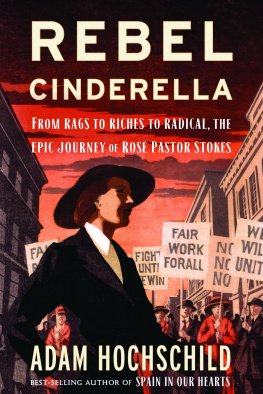

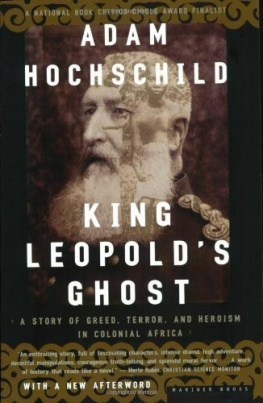


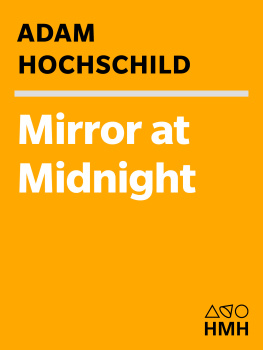
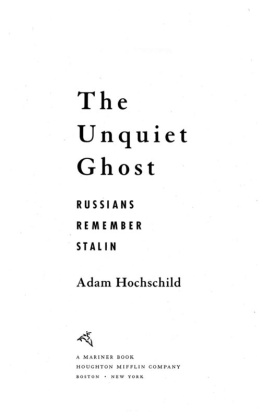
![Margaret Millar - Rose's Last Summer [= The Lively Corpse]](/uploads/posts/book/899392/thumbs/margaret-millar-rose-s-last-summer-the-lively.jpg)
